General medicine, drug reps, and celebrations
This past week, I had my general medicine rotation and was taken aback by the plethora of discrete cases that came through. These cases covered almost all of the body’s organs and ranged from simple fevers to complex tumors. The reason for such a varied patient base in general medicine is that many specialists such as neurologists, endocrinologists, and cardiologists tend to be present in large towns and cities, and they only visit smaller yet highly populated areas once a week. This results in patients seeking advice from general medicine practitioners, (along with general surgeons), and, subsequently, general medicine departments have to diagnose a broad spectrum of illnesses.
- Inside the General Medicine OP room
- Inside the General Medicine OP room
Due to the lack of continuous access to specialists, general medicine and general surgery departments are two of the largest departments found in most Indian hospitals. I have spent time in both of these departments and noticed some key differences between them.
One of these differences is the structure of a typical week. A general surgeon’s week consists of three days in the operation theatre (OT) and the other three in out-patient (OP) room. A general medicine doctor doesn’t have this alternating schedule of OT/OP days, as the week consists entirely of OP days. Not all OP days are created equal, however. In general surgery OP, the average time a patient spends in the OP room is about five minutes, while, in general medicine OP, it is closer to 40 minutes. This large difference results from the distinct approaches taken by both departments in treating a patient. In general surgery OP, there is usually a very specific symptom which indicates, relatively quickly, the identity of a patient’s complaints. However, patients arriving in general medicine OP have symptoms such as fever or joint pain that could be caused by a wide range of illnesses, so the doctor conducts a complete comprehensive examination to understand the reasons underlying those symptoms.This method takes longer but is necessary in general medicine, while a shorter, more concise procedure is sufficient in general surgery.
This divergence between general surgery and general medicine only grows when considering the number of pharmaceutical company representatives who give mini-presentations to doctors. In my four day stint in general medicine, four sets of representatives came by to promote their product; prior to that, I had only seen one in general surgery. The job of these reps is to give a little talk about all of their company’s products and to answer any of the resulting questions from the doctor. Since general medicine practitioners prescribe a large array of medicines, they become an obvious choice for these presentations. After sitting through a few of them, I have noticed a trivial aspect of these presentations that is quite amusing: the pocket phone phenomenon. Every representative has a large phone which he places backwards in the front pocket of his shirt. Although “the pocket phone phenomenon” may be a coincidence, I like to believe that there is a reason for this and will get to the bottom of this mystery.
Another confusing yet comical aspect of this past week was a farewell celebration organized by second year MBBS students to honor Dr. Anand Reddy, a general surgeon. Prior to the start of this ceremony, I got a phone call from a house surgeon that Dr. Anand Reddy wanted to talk to me; when I arrived at Dr. Anand Reddy’s office, he told me to cut the cake the students had bought for him. Surely it had to be a joke. A few minutes of uncontrollable laughter later, I realized that he was being serious, so I cut the cake. I still don’t know why he wanted me to cut the cake, but everyone enjoyed it, so I am glad that it happened.
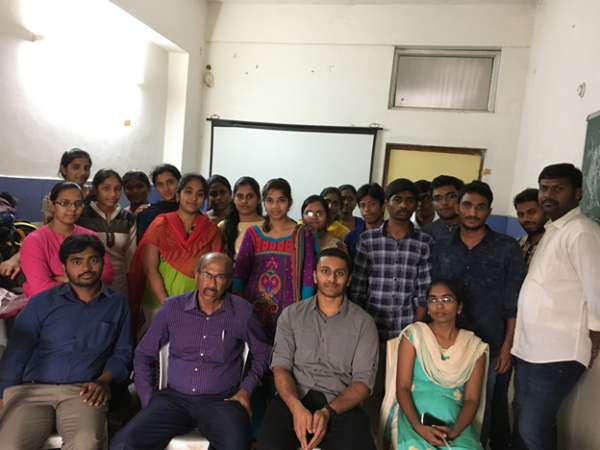
MBBS students standing behind Dr. Anand Reddy. Sitting next to Dr. Anand Reddy and I are the two PG students Laxman and Pranitha. Off to the side are the house surgeons Raghava (in the white shirt) and Manohar babu (behind Raghava).
Next week, I will be in pulmonary medicine and psychiatry learning about other interesting aspects of Santhiram general hospital. I will give an update on any experiences or surprises next week.


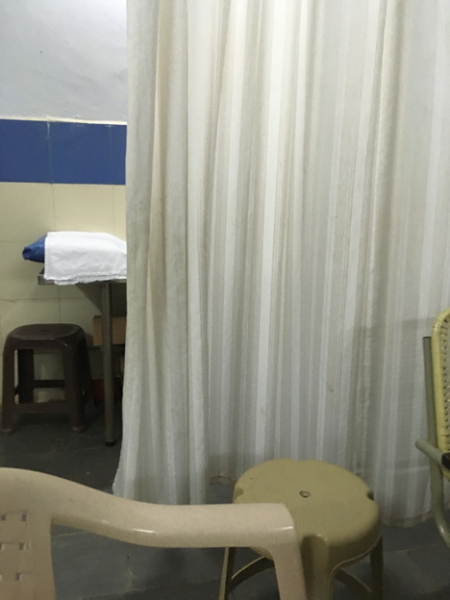
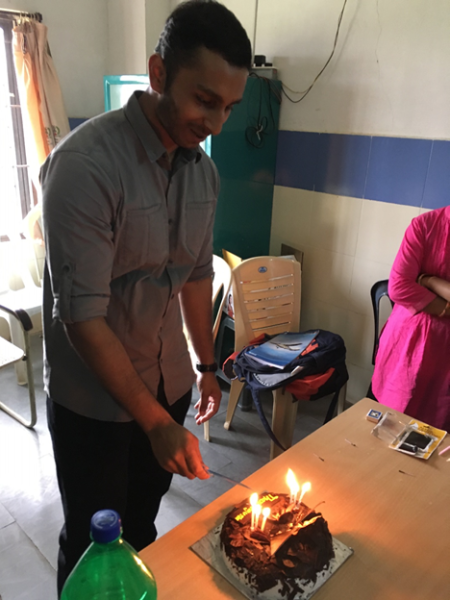
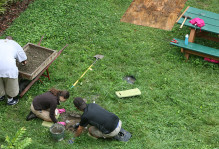

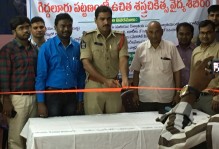
No comments.
Comments are currently closed. Comments are closed on all posts older than one year, and for those in our archive.